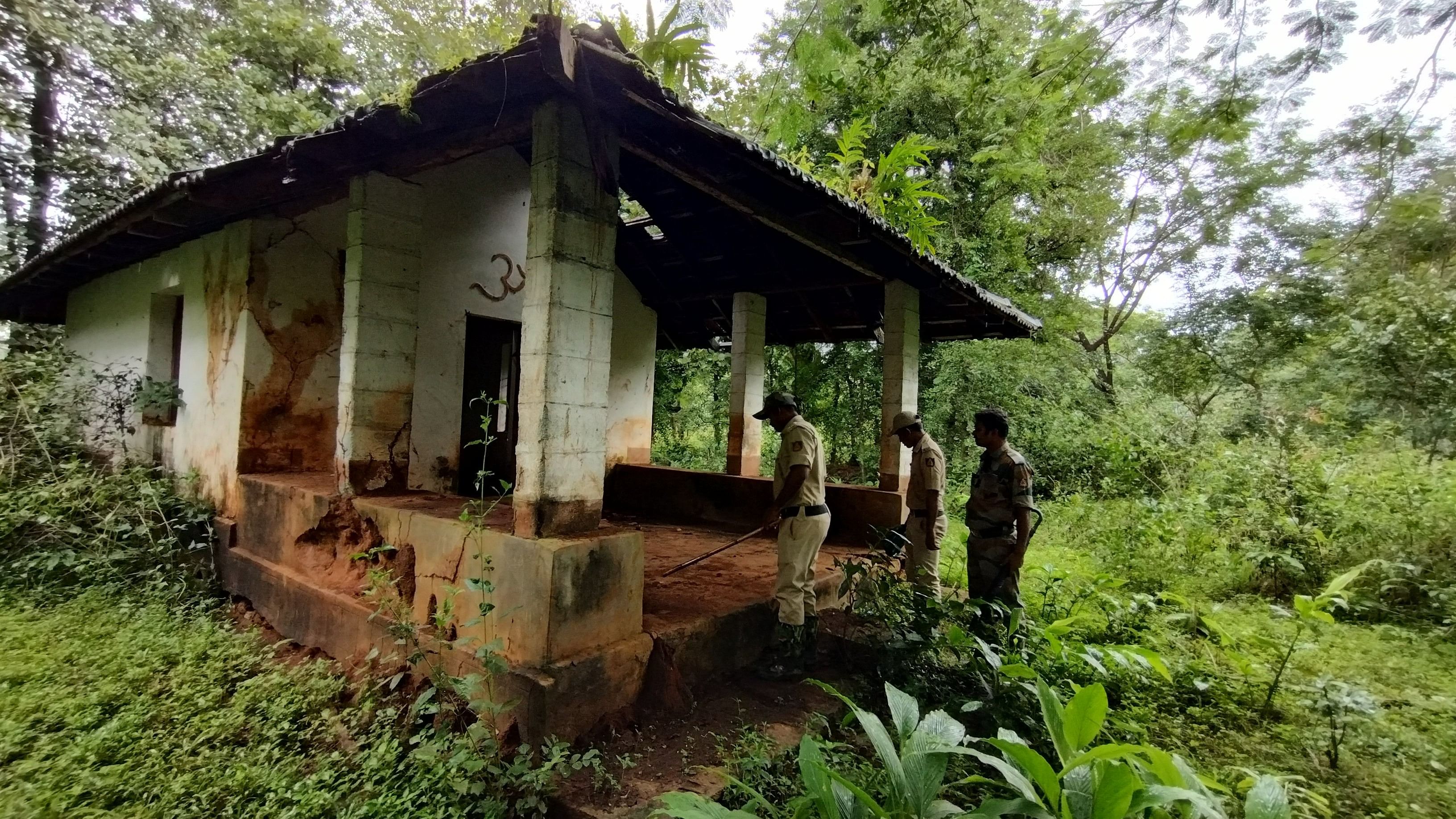
Forest officials outside the Madhukeshwar temple, the only structure that has been left undemolished, inside the Bhadra Tiger Reserve.
Credit: DH PHOTO/PAVAN KUMAR H
Hubballi: The successful rehabilitation of 736 families from Bhadra Tiger Reserve (BTR) in Chikkamagaluru 20 years ago, seems to have helped improve the economic and social status of relocated forest dwellers.
The biggest changes in their lives have been access to health and education, with at least 25 persons becoming first-generation graduates. Some of them are either studying or working abroad.
Before rehabilitation, only one person from the community had enrolled for a BCom course and had to discontinue his education due to personal reasons.
While experts say that the Bhadra rehabilitation programme has created an inviolate space for wildlife such as tiger, elephant, leopard, past residents of BTR say that this programme has helped them build a better life at MC Halli, some 50 km from BTR.
“Our lives have improved after rehabilitation. We are getting better education, healthcare and livelihood opportunities,” says H T Shivanna, a former resident of Hebbe village in BTR.
Till 2002, a total of 736 families were living in 16 hamlets/villages within the core area of the forest. The forest dwellers were mostly farmers or landless labourers working in coffee estates. The nearest primary school for these residents was some eight km from the village, high school another 16 km and for college the residents of these villages needed to travel to Chikkamagaluru, 37-km away. The students had to cross streams and thick forests to reach schools.
“A majority of us, especially boys, used to complete SSLC. Beyond that was difficult as our families could not afford to put us in a hostel. Primary schooling is what girls of our villages could have completed,” says Anne Gouda of Madala village in BTR.
That has changed now. Sagarika Madal (25), who completed her pre-primary schooling in a government-run anganwadi near BTR went on to complete her Masters in Finance from Imperial College of London. She is working in one of the firms there.
“My parent’s decision to shift to Chikkamagaluru from Madala helped me and my sister greatly in our education. It gave us better exposure and opportunities,” she tells DH over the phone from London. Her sister is training in Australia to become a pilot.
Village elders say in the last two decades the community has seen at least 25 first-generation graduates. Some youths have joined the army, forest department, banking sector, judiciary and other sectors while others have settled abroad in Dubai, Australia, Japan and other countries.
As every family got at least three acres of irrigated land, a majority of them have taken up cultivation of sugarcane, areca and coffee plantations. Conservationist D V Girish, whose NGO played a vital role in rehabilitation, says relocation has helped the families improve their social and economic status. “Many landless labourers and small scale farmers, who used to suffer crop loss due to wild animals in BTR, are now cultivating their land and getting value for their labour.”
The inviolate forest is also benefiting the forest department in better conservation as the agriculture fields left behind by farmers have turned into grasslands ensuring a thriving population of herbivores and carnivores.
“Human-animal conflict has come down drastically in BTR. The biggest advantage of rehabilitation has been zero fire incidents in BTR since 2002 which has helped in the growth of bamboo, a primary food source for elephants. There is a scope to accommodate more wild animals in BTR now,” says BTR Field Director Yashpal Kshirsagar.